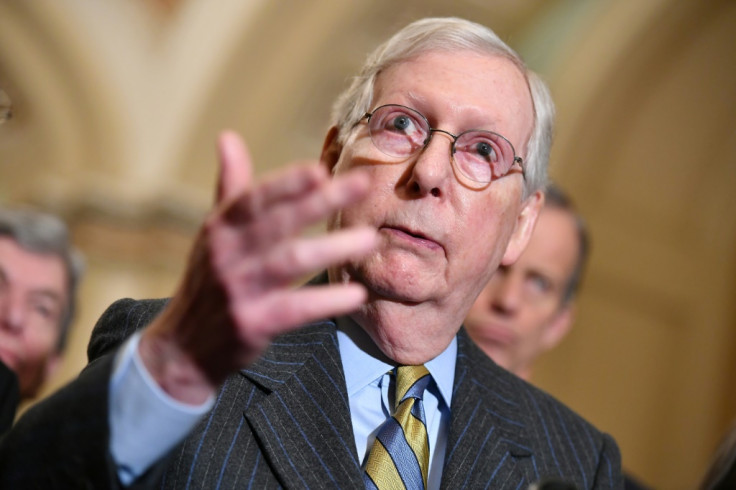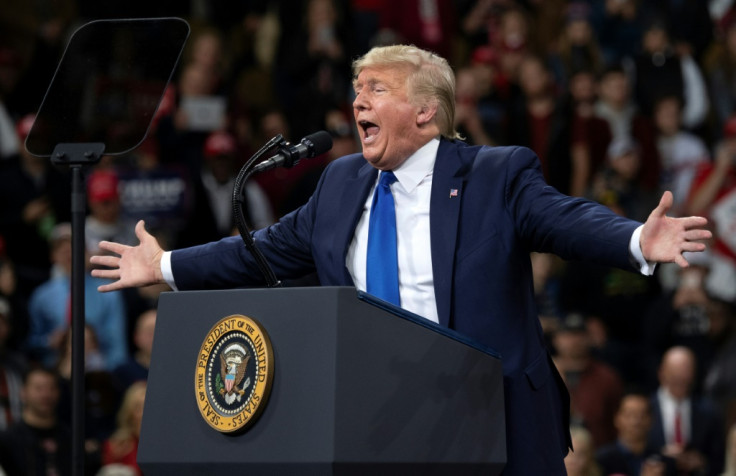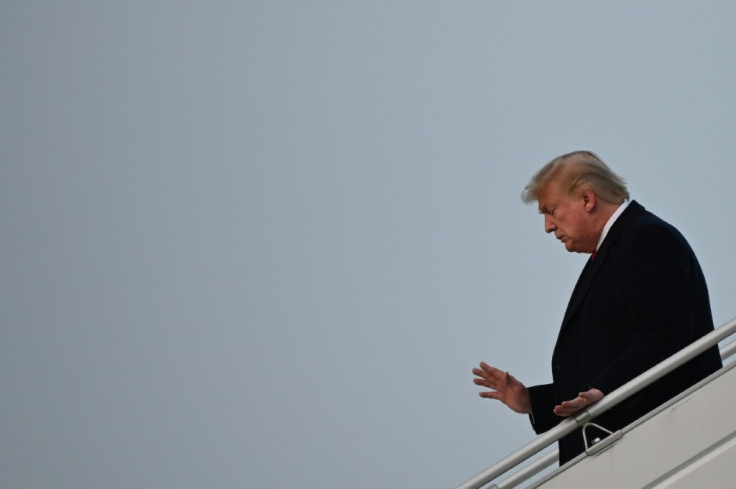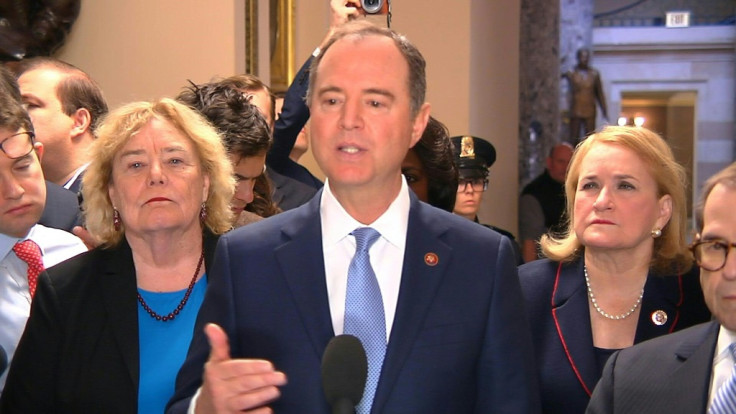Trump sought to cheat to win re-election, Democrats charge at trial
The Democratic lawmaker described how Trump solicited foreign interference in US elections, "abusing the powers of his office."
Democrats Wednesday accused President Donald Trump at his historic Senate impeachment trial of seeking to "cheat" to ensure re-election in November, as they began laying out their detailed case for removing him from office.
Adam Schiff, head of the House of Representatives' prosecution team, took to the Senate floor to deliver hours of methodical arguments to a hushed chamber that was hearing only the third-ever impeachment trial of a US president.
The Democratic lawmaker described how Trump solicited foreign interference in US elections, "abusing the powers of his office to seek help from abroad to improve his re-election prospects at home."

"And when he was caught, he used the powers of that office to obstruct the investigation into his own misconduct," said Schiff, who headed the probe that led to Trump's December 18 impeachment by the Democratic-controlled House.
Schiff shrugged off Republican arguments that American voters -- and not the Senate -- should decide whether Trump should remain in the White House.
"The president's misconduct cannot be decided at the ballot box for we cannot be assured that the vote will be fairly won," Schiff said.

Trump stands accused of withholding military aid from Ukraine to pressure his Ukrainian counterpart to announce an investigation into Democrat Joe Biden, his potential election rival in November.
"President Trump withheld hundreds of millions of dollars in military aid to a strategic partner at war with Russia to secure foreign help with his re-election," Schiff said at the nationally televised proceedings.
"In other words, to cheat. If this conduct is not impeachable, then nothing is."

Interspersing his remarks with video testimony from the House inquiry, graphics and references to the Constitution, Schiff appealed to the Senate's 100 members to put aside partisanship in deciding Trump's fate.
"These are politically charged times," he acknowledged. "Tempers can run high, particularly where this president is concerned."
Fellow House manager Hakeem Jeffries made the argument that a US president must distinguish himself from non-democratic world leaders.
"Vladimir Putin is above the law in Russia. (Recep Tayyip) Erdogan is above the law in Turkey," Jeffries said.

"But in the United States of America no one is above the law, not even the president," he added. "That is what this moment is all about."

Republicans, who hold a 53-47 edge, have shown little inclination, however, to break ranks with a president who has a history of lashing out ferociously at his perceived enemies.
"I didn't hear anything new at all," Republican Senator John Barrasso said during a trial break.
Sixty-seven senators, a two-thirds majority, are needed to remove Trump from office and a series of votes Tuesday on the trial's ground rules followed strict party lines.

Republicans shot down repeated efforts by Democrats to introduce White House witnesses and documents at the start of the trial.
Trump blasted the proceedings as a "witchhunt" and a "hoax" and said he expected the Senate to clear him "fairly quickly."
The president defended the Republicans' rejection of Democratic efforts to force former national security advisor John Bolton and others to testify at his trial saying of Bolton, for example, that it would present a "national security problem."
Trump then went on a Twitter tear, firing off a record number of tweets and retweets in a single day of his presidency -- 150 as of 8:30 pm.
With reports swirling that some Democrats were mulling pushing for Biden or his son Hunter, who served on the board of a Ukrainian energy company when his father was vice president, to testify in exchange for key administration officials being called as witnesses, the top Democrat waived it off.
A witness trade is "off the table," Senate Minority Leader Chuck Schumer said.
House impeachment managers have 24 hours over three days to make their case that Trump is guilty of abuse of power and obstruction of Congress.
White House lawyers then have 24 hours to present their defense.
Senators will then have an opportunity to ask written questions to be read out aloud by US Supreme Court Chief Justice John Roberts, who is presiding over the trial.
Roberts' role is mostly ceremonial but he did warn both sides during heated exchanges Tuesday to watch their decorum.
"Those addressing the Senate should remember where they are," Roberts said.
Trump's personal attorney, Jay Sekulow, said the White House will "challenge aggressively the case that they're putting forward."
"There's a lot of things to rebut and we'll do it in an orderly and systematic fashion," he told CNN.
The next few days are likely to be an endurance test for senators, 14 of whom are 75 or older.
Senators are barred from having electronics at their desks and they have been spending their time chatting quietly or scribbling on notepads when not listening intently.
The four Democratic senators seeking to challenge Trump for the White House have been forced to take time off from campaigning ahead of the first state vote to choose their party's nominee in Iowa on February 3.
Copyright AFP. All rights reserved.
This article is copyrighted by International Business Times, the business news leader





















